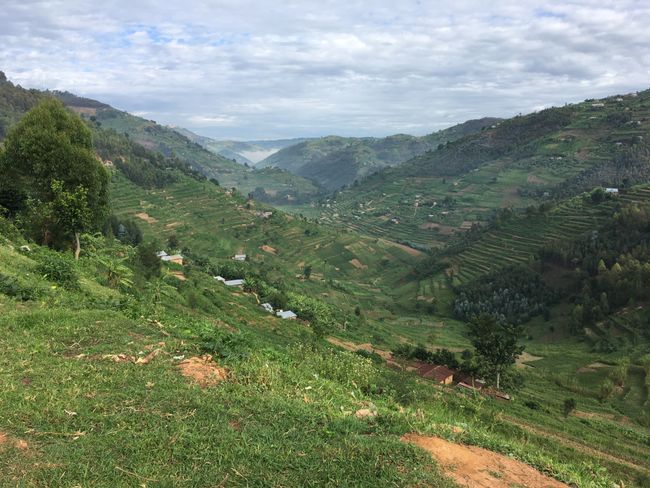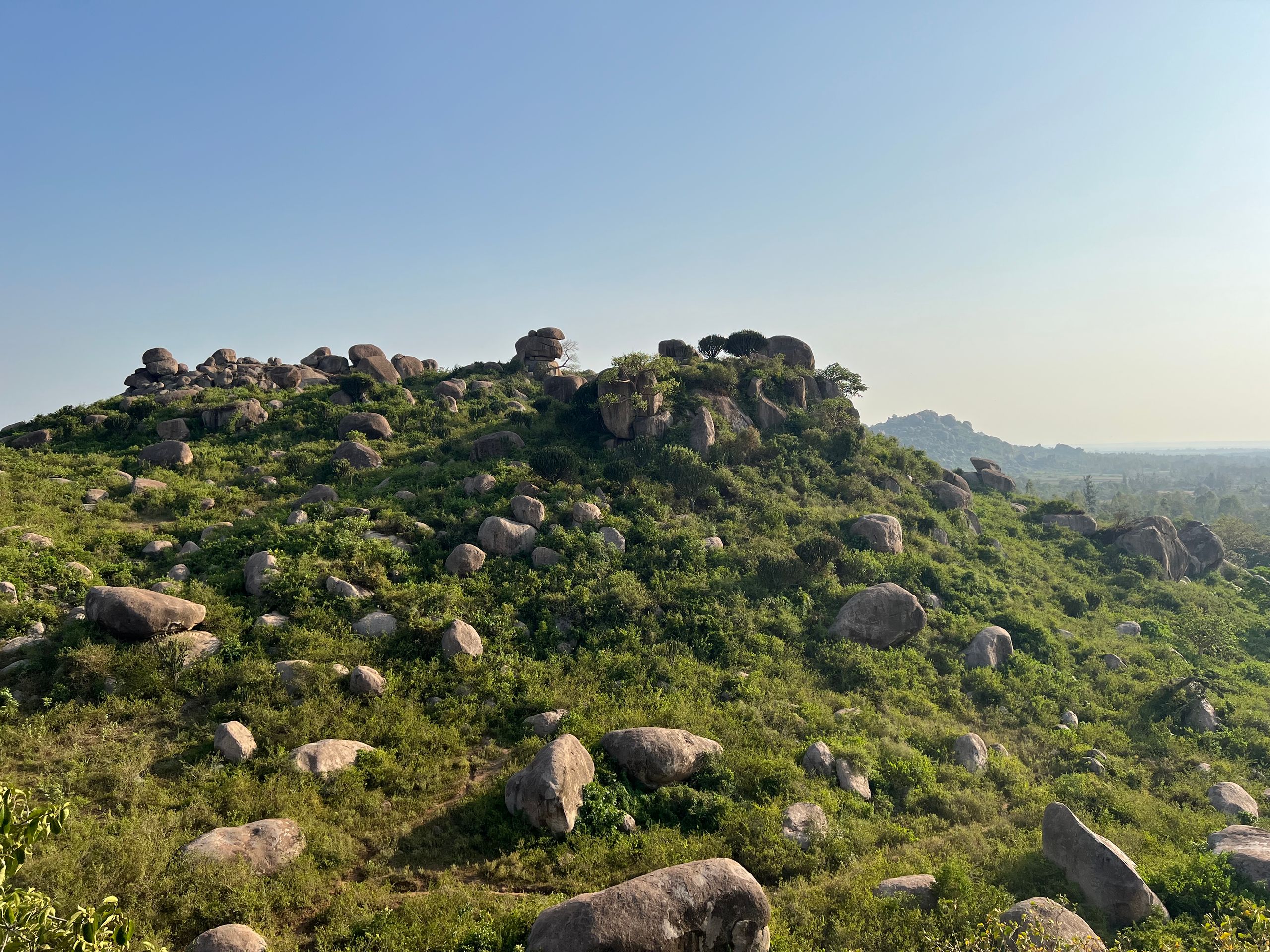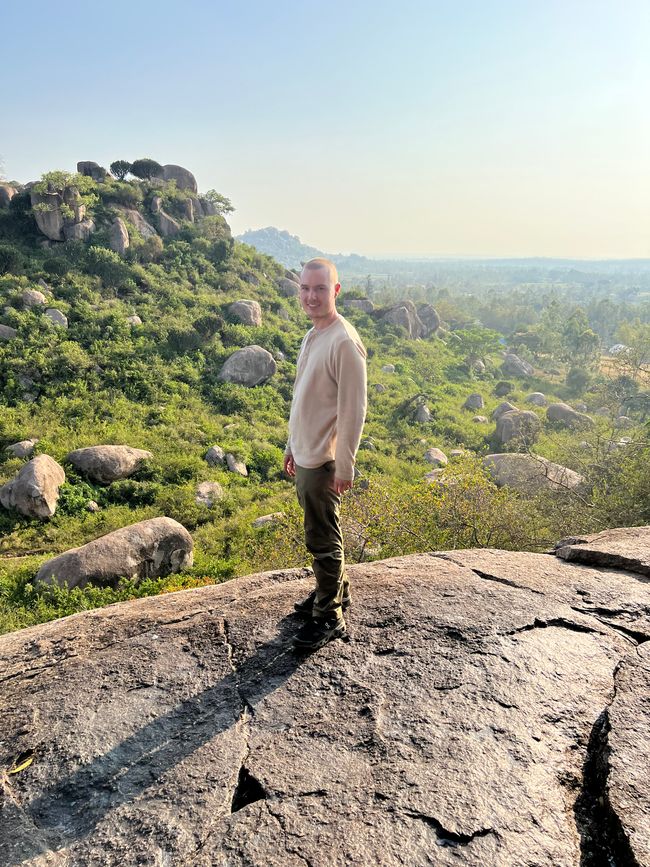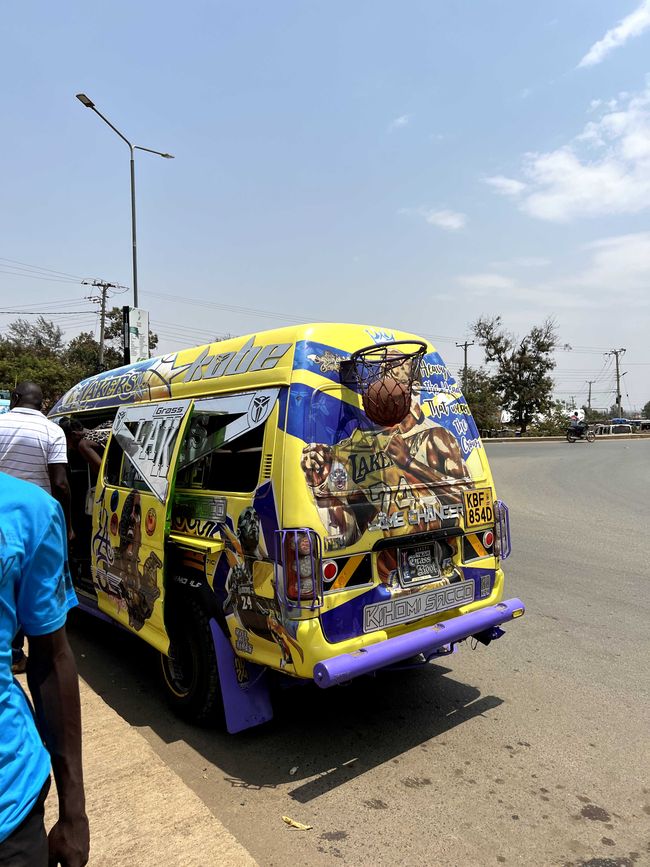The journey does not rest
Byatangajwe: 23.02.2023
Iyandikishe mu kinyamakuru
Day 24
I wake up. It vibrates on the roof above me. Is that rain? A light wind passes by my room, noticeable through the mosquito windows, consisting only of a small opening and thin wire mesh. The vibration and impacts on the tin roof become stronger. That's rain. And what kind of rain. The wind now takes on monsoon-like conditions with its whipping and thundering sounds. At least it sounds like it. Like the end of the world. It lasts about an hour like this, then the wind weakens again and it only trickles down to the earth. I fall asleep again.
When I woke up this morning and the usual peace had returned, I briefly wondered if the rain had just been a dream. The last time it rained properly in Kisumu was probably at Christmas. But I quickly became sure that the rain I heard in my ears and imagined like a deluge was real and so when I opened the door, I expected huge puddles and complete wetness. But everything was dry. No sign of rain, not a single drop of water. Fortunately, the staff later prevented me from despairing about my perception by confirming the rain. They also told me that this little shower was nothing compared to the rainy season that would start in March. This was just a preview, a small teaser. However, you can already feel in the air for the past few days that the rain is not far away anymore.
It's Thursday and I'm sitting in my usual shady spot while enjoying a sweet mango and letting the slowly growing hair stubble be caressed by the gentle wind. The shade is not such a bad choice because a few days ago I got a discreet sunburn on the back of my neck. That's what happens when you play football on the school playground with the children for hours in the Kenyan noon sun 15 kilometers away from the equator. That was on Tuesday. In the second primary school that I have now visited, I was able to capture some shots of everyday school life again. But above all, the goal here was to stage the final scene of the film with the children on a large field. Everything worked out very well (even if shooting with 150 excited primary school children is not the easiest task). In general, the film work has gone pretty smoothly up to this point and I actually have everything I need. The next few days will be for fine-tuning and can be used as a buffer for re-shoots. This is a pretty comfortable situation that allows me to really enjoy the last few days here in Kisumu.
This week I discovered the famous Kenyan matatus for myself. These are ancient minibusses that make up public transportation in Kenya. So far, I have usually ridden the life-threatening picky pickies, and they're fun and very practical because they take you exactly where you want to go, but matatus have their own charm and are not only safer but also much (!) cheaper than these rickety motorcycles. The matatus are all individually designed. They are painted in bright colors and often display emblems of football clubs, famous personalities, musicians, or simply artistic experiments.
A matatu has two employees. The driver and the cashier, who hangs out of the sliding door during the journey and lures new customers. The good thing about the matatus is that you never have to wait for a bus or walk to a bus stop. There are no bus stops here to begin with. You never have to make an effort to catch a bus because it seems that rather the buses want something from you than you want something from them. So as soon as you step onto the street, a few seconds later you will be shouted at by the men hanging out of the buses, drawing your attention to them. The drivers are so eager for you to get on their matatu and not another one that often just looking up is enough for them to make a full stop and for you to shuffle over to them and get on. The supply here surpasses the demand. Inside, there are about 15 Kenyans sitting like in a regular bus, only much closer. When someone wants to get off, the cashier is informed and the bus stops by the roadside. Some people have to get off so that the guest who wants to get out can get through from the back. Often there is loud Kenyan music playing from big speakers, and not infrequently a matatu is also adorned with flashy LED lights or television monitors showing music videos by rappers or R&B artists. Sometimes it's like a party bus and all this is available for a five-minute ride for 20 Kenyan shillings, which is equivalent to 15 cents. I love it.
Well, the matatus. One of the many everyday adventures that actually sums up the wild and bustling atmosphere of Kenya quite well.
Now I won't be in Kisumu, in the remote west of Kenya, for much longer. On Lake Victoria, away from tourism. There are only a few days left until my work here ends. The filming of the movie is almost complete, and February is coming to an end. For me, it means saying goodbye to this place where, even if it was only four weeks, I honestly feel a little bit at home. A fixed place to sleep, nice colleagues, the familiar way to the supermarket or into town.
All of this is coming to an end now. The second part of my journey is coming into view and the adventure is taking a new turn. The excited cashiers of the matatus call out to me. I should get on, it's continuing. I stop for a moment, wave it off. But the next matatu that comes, I'll take it. The journey does not rest. I am ready.
Iyandikishe mu kinyamakuru
Igisubizo

Raporo yingendo Kenya


